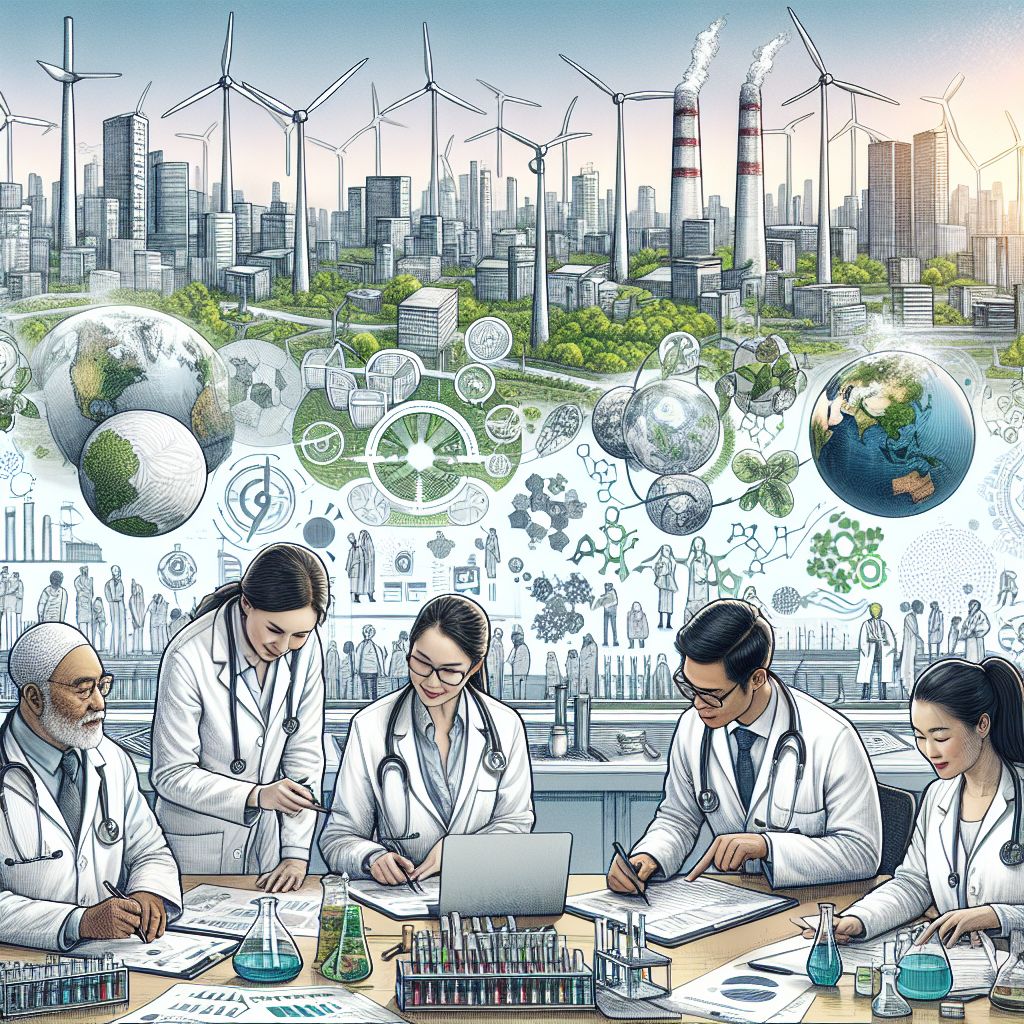Table of Contents
- Introduction: The Healing Power of Doctors: Addressing the Environmental Impact of Industrialized Nations
- Interconnectedness of Human Health and the Environment
- The Influence of Doctors in Advocating for Sustainable Practices
- The Moral Responsibility of Civilized Nations
- Doctors as Environmental Stewards
- Conclusion: The Healing Power of Doctors
Introduction: The Healing Power of Doctors: Addressing the Environmental Impact of Industrialized Nations
• The role of civilized nations and their healthcare professionals in mitigating climate change.
• The imperative for doctors to use their influence to advocate for sustainable, environmental practices.
The issue of climate change has leapt beyond the confines of scientific discourse and has become an urgent concern for all sectors of society, including the medical community. Despite their primary role in healthcare, doctors are increasingly playing a crucial role in addressing the environmental impact of industrialized nations. The significance of this topic lies in the interconnectedness of human health and the environment, the potential influence of doctors in advocating for sustainable practices, and the moral responsibility of civilized nations to mitigate the effects of climate change.
Interconnectedness of Human Health and the Environment
Climate change poses significant risks to global health. As a result of industrialization, pollution and greenhouse emissions have caused drastic changes in our environment, leading to the spread of infectious diseases, heat stress, and malnutrition. Doctors, as the primary caregivers, witness these health impacts firsthand, making them uniquely positioned to mitigate these effects. They understand better than anyone that preserving human health is intricately tied to maintaining a healthy environment.
The Influence of Doctors in Advocating for Sustainable Practices
Doctors hold a position of trust and respect in society and can use this influence to advocate for sustainable practices. They can educate their patients, colleagues, and the wider community about the health impacts of climate change and the importance of sustainable living. Their role extends beyond the consultation room; they can lobby policymakers for better environmental regulations, conduct research on the health effects of climate change, and promote green practices within their organizations.
The Moral Responsibility of Civilized Nations
Industrialized nations, due to their high levels of consumption and production, contribute significantly to climate change. It is, therefore, their moral responsibility to take the lead in mitigating the effects of climate change. This includes implementing sustainable practices, investing in renewable energy, and reducing greenhouse gas emissions. The medical community, as a respected and influential part of these societies, can play a crucial role in pushing for these changes.
Doctors as Environmental Stewards
The healthcare sector itself contributes to environmental degradation through high energy consumption, waste production, and greenhouse gas emissions. Doctors can act as environmental stewards within their organizations, advocating for greener practices such as reducing waste, conserving energy, and sourcing sustainable materials. They can also lead by example, reducing their carbon footprint both in their professional and personal lives.
Conclusion: The Healing Power of Doctors
The role of doctors in addressing climate change is multifaceted and significant. Their understanding of the health-environment nexus, their influence within society, and their capacity to act as environmental stewards within their organizations positions them as powerful agents of change. As climate change continues to threaten global health, the medical community’s role in mitigating these effects becomes increasingly important. Doctors, alongside the nations they serve, are integral in healing not just individuals, but our planet as well.
Indeed, the medical community has a significant role in the global fight against climate change. They are not only the front-line responders to the health crises that climate change exacerbates but also have a moral responsibility to educate the public about the possible health risks associated with climate change. This includes the spread of infectious diseases, worsening of chronic illnesses, and increase in cases of mental health disorders triggered by climate-related disasters.
The medical profession can also help mitigate climate change by decreasing the carbon footprint of healthcare itself. According to studies, the healthcare sector generates a significant amount of greenhouse gas emissions, making it a substantial contributor to global warming. Therefore, the implementation of sustainable practices in healthcare facilities, such as efficient energy use, waste reduction, and green procurement, is an area where the medical community can significantly impact.
Moreover, doctors can use their influential positions to advocate for policies that address climate change. They can work with government and non-government organizations to create and enforce regulations aimed at reducing carbon emissions and promoting sustainable practices. For instance, they can lobby for clean air standards, renewable energy sources, and public transportation systems, which can significantly reduce our carbon footprint.
Lastly, the medical community can collaborate with researchers to study the health impacts of climate change further. This joint effort can lead to a better understanding of the problem, which can then inform more effective prevention and intervention strategies. It can also stimulate innovation in the medical field, resulting in the development of new technologies and practices that are both environment-friendly and efficient.
In conclusion, the medical community’s role in combating climate change is multifaceted and critical. By educating the public, reducing the carbon footprint of healthcare, advocating for climate-friendly policies, and collaborating with researchers, doctors can significantly contribute to the global effort to mitigate climate change and its devastating health effects.
